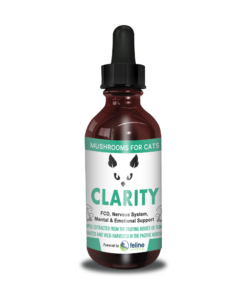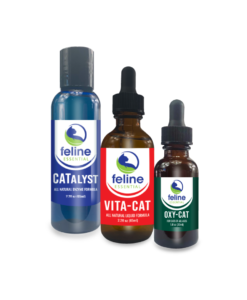It’s possible you’ve never wondered what fruits are safe for cats – and why would you, really? Cats are obligate carnivores. They need and eat meat. Not fruit… Or do they?
A few of our cats are total roughage robbers. They are fascinated with any fresh fruit (or veggie) we bring in the house. And yes – sometimes they snatch and run – apparently so they can enjoy their special snack in private.
This obviously led to a full-blown investigation into why cats are so weird – with a focus on if fruits are safe for cats. And if so, which ones?
It’s worth noting that we were initially surprised that cats could be fruit fans. But it’s a well-known feline fact that cats are so curious. Why wouldn’t that curiosity also extend to food? You may still be thinking this is all fake fruit news. Maybe you’ve had cats all your life without one ever raiding the fruit bowl. I get it. Some of our cats would prefer to sniff a foot than explore produce of any kind – so let this just be a great reminder. A reminder that every cat is an individual – with unique personalities and preferences – making almost all of the the exception to some rule somewhere.
Anyway – let’s get back to fruits that are safe for cats. And the list is pretty long.
Safe Fruits For Cats Include:
Blueberries, blackberries, strawberries, raspberries, cranberries, melons (seeds removed), mangos, bananas, pears, pinapples, papayas, peached, nectarines (pits removed), and apples.
This list begs the questions: What fruits are not safe for cats??
Citrus fruits – like lemons, limes, oranges – are considered toxic if enough is eaten. But the smell of citrus is so unattractive to cats that we will sometimes use a pure extract as a deterrent for things like our cats climbing the Christmas tree.
Grapes – and their little friend, the raisin – are also considered dangerous if consumed in large quantities. It’s not really understood why grapes are considered ‘toxic’ – but safe to say we’ve yet to meet a cat that actually ate a grape. Our cats find them to make great toys – and we don’t panic if they bite into one while batting it about.
Avocados. Perhaps there is no more controversial fruit than the avocado. There are entire pet groups, websites, and endless content advising against this pure poison that is the avocado. Yes – avocados contain persin. Persin is an oil-soluble fungicidal toxin found in the bark, leaves, skin and pit of avocados. A very minimal amount is also found present in the flesh of the fruit as well – but certainly not enough to overshadow the many benefits of this fascinating fruit. We have no issue letting our cats lick the spoon after making avocado smash for ourselves.
To better understand the misconceptions around the avocado, please read this comprehensive article (complete with footnoted studies) by Dr. Karen Becker. And yes – the good doctor specifically addresses the unique health concerns for cats.
A Final Note
To be very clear, this blog is in no way meant to encourage you to stuff you cats full of fruits – instead of their species appropriate food. Its intent is to help remove the fruit fears and to embrace your cat’s curiosity. You may be surprised to find you have a few fruit freaks of your own if you give them a chance to explore some of your snacks.




Recent Comments